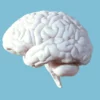In past research, psilocybin has shown to be useful for the treatment of common mental health problems, including affective disorders. Its impact on cognitive function among healthy people, however, was not widely studied.
“The aim of this study was to explore the safety of simultaneous administration of psilocybin to healthy participants in the largest randomised controlled trial of psilocybin to date,” according to a team of British, Finnish, and Dutch researchers.
“Primary and secondary endpoints assessed the short- and longer-term change in cognitive functioning, as assessed by a Cambridge Neuropsychological Test Automated Battery (CANTAB) Panel, and emotional processing scales.”
As many as 89 healthy participants were randomly administered either a single dose of 10 or 25 mg of psilocybin, or a placebo. Each participant were given a therapist to receive psychological support.
The findings were published in the Journal of Psychopharmacology.
What researchers concluded in their study: “These results indicate that 10 mg and 25 mg doses of psilocybin were generally well tolerated when given to up to six participants simultaneously and did not have any detrimental short- or long-term effects on cognitive functioning or emotional processing.”
“Further investigation of simultaneous therapeutic psilocybin administration in clinical populations is warranted.”


